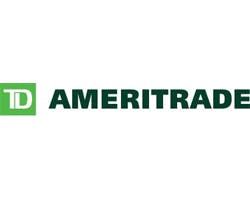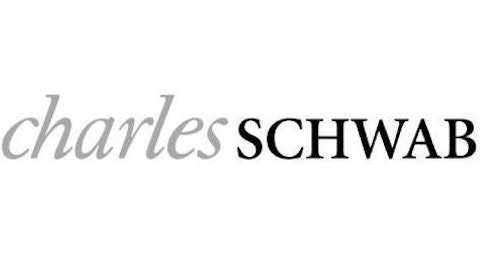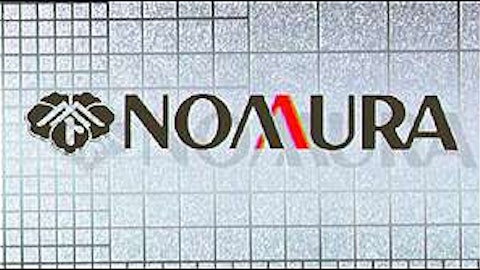TD Ameritrade Holding Corp. (NYSE:AMTD) chairman, Joe Moglia, recently stated on CNBC that the market suffered a correction. Translation: it’s nothing to worry about. In his opinion, the pullback related to a spectacular run, not underlying fundamentals. Moglia also thinks that Ben Bernake’s announcement of backing off his $85-billion bond-buying program later in the year is a positive, because it indicates the E TRADE Financial Corporation (NASDAQ:ETFC) conomy is gaining strength.
Of course, Moglia is going to put a positive slant on every economic development. If Bernake announced that he would add to his bond-buying program later in the year, then Moglia arguably would have stated it was a positive because it would help equities.
Many investors believe that TD Ameritrade Holding Corp. (NYSE:AMTD) performs best when stock market volatility reigns supreme. While that might be the case in the short term, it’s important to note that increased volatility often indicates a trend change. In the current environment, this would lead to a trend downward, which would be a negative for TD Ameritrade Holding Corp. (NYSE:AMTD).
Improved performance
The following is a well-known saying on Wall Street: “The market can stay irrational longer than you can stay solvent.” In other words, your logic might make sense, but you could lose anyway because external forces are altering the natural direction of the market.
The point here is that fundamentals should lead to a steep downward movement in the stock market, but every time downward momentum begins to build, the Federal Reserve (or other central banks around the world) step into the fray with an action or comment and prop the markets back up. This is good news for TD Ameritrade Holding Corp. (NYSE:AMTD) and its investors, because retail investors make more trades when the market is doing well.
TD Ameritrade Holding Corp. (NYSE:AMTD) might perform best when volatility is high, but it really wants the market to stay high for optimal long-term results. In May — prior to the recent market swoon — trading at TD Ameritrade Holding Corp. (NYSE:AMTD) increased 9% versus April and 13% year-over-year. Also in May, total client assets improved 19% compared to April and 23% year-over-year. If total client assets are moving higher, it indicates that traders are performing well, which relates to the steady ascent of the market prior to June.
TD Ameritrade’s revenue increased over the last three quarters but declined in 2012. You also have to figure that most retail investors and traders don’t hedge.
If their stock drops, they’re simply going to watch it drop and hope for the best. Inaction doesn’t help TD Ameritrade. When the market is rising, those same traders will look to move some of their capital to another stock that they think presents a better opportunity.
If you ever want a clue for future performance, go to Alexa.com and study the website’s recent traffic trends. Over the past month, pageviews-per-user have declined more than 2%, and time-on-site has declined 1%. These aren’t big moves, but they’re not positives, either. And they could indicate that June’s performance will be sub-par.
TD Ameritrade vs. peers
TD Ameritrade caters to retail traders as well as Registered Investment Advisors. Its trading platforms include web platform (alerts, screeners, customizable workspace), trade architect (streaming news and opportunity identification), thinkorswim (in-depth analytical resources), and mobile (streaming market commentary on mobile devices). As stated above, revenue declined in 2012, but the recent performance has been strong.
Both TD Ameritrade and Charles Schwab Corp (NYSE:SCHW) have demonstrated quality debt management, sporting debt-to-equity ratios of 0.3 and 0.2, respectively. E TRADE Financial Corporation (NASDAQ:ETFC), a brokerage products and services provider, owns a debt-to-equity ratio of 1.6.
Companies with quality debt management and strong cash positions have an advantage if a bear market presents itself. These companies have the ability to increase their dividends or offer share buybacks in order to attract more investor interest. Companies like E TRADE Financial Corporation (NASDAQ:ETFC) don’t have such a luxury as it will be busy paying down debt.
Even if debt doesn’t concern you, E TRADE Financial Corporation (NASDAQ:ETFC)’s revenue has now declined four years in a row, and it has only delivered a profit in one of the past five years. On the other hand, a couple of insiders have been buying E TRADE Financial Corporation (NASDAQ:ETFC) shares — and making money.
Conclusion
E TRADE Financial Corporation (NASDAQ:ETFC) has performed poorly during one of the biggest bull runs in history, debt is a burden, and there is no dividend yield. However, insider buying is a positive sign. Overall, E TRADE Financial Corporation (NASDAQ:ETFC) should only be considered as a highly speculative play.
If you’re looking for the best upside potential out of the three aforementioned companies, then it would be TD Ameritrade, but that’s only if the broader market performs well. If you’re looking for steady gains as well as the most resiliency in bear markets, then consider Charles Schwab Corp (NYSE:SCHW). With $34 billion in cash, many options are available for returning more capital to shareholders if necessary. It should also be noted that TD Ameritrade currently yields 1.5%, and Charles Schwab Corp (NYSE:SCHW) yields 1.2%.
The article Is This Investment Brokerage Unstoppable? originally appeared on Fool.com is written by Dan Moskowitz.
Dan Moskowitz has no position in any stocks mentioned. The Motley Fool recommends TD Ameritrade. Dan is a member of The Motley Fool Blog Network — entries represent the personal opinion of the blogger and are not formally edited.
Copyright © 1995 – 2013 The Motley Fool, LLC. All rights reserved. The Motley Fool has a disclosure policy.




